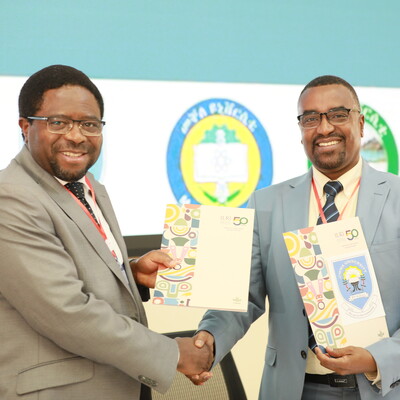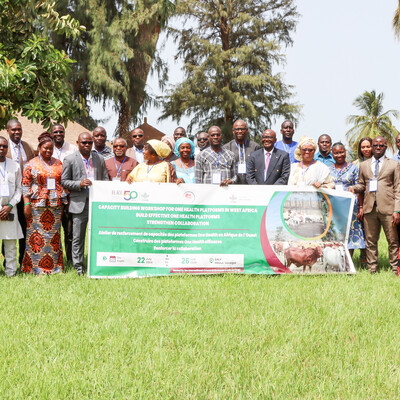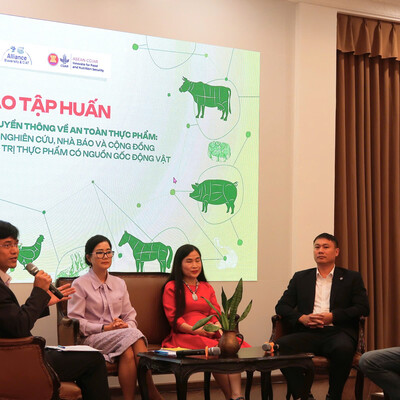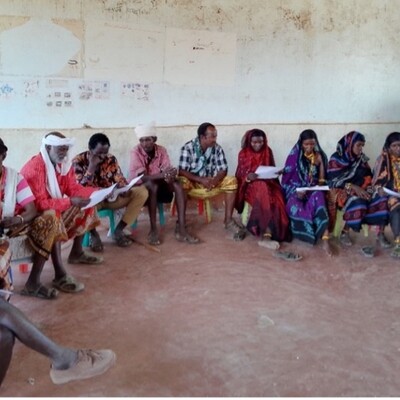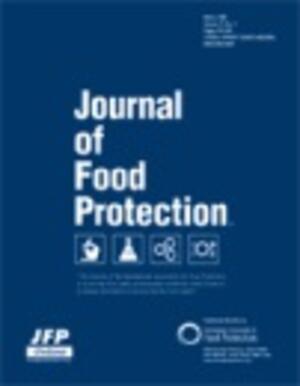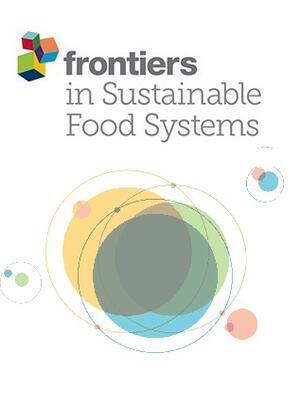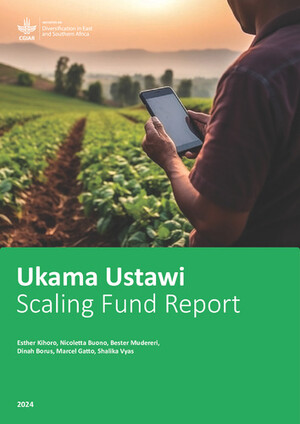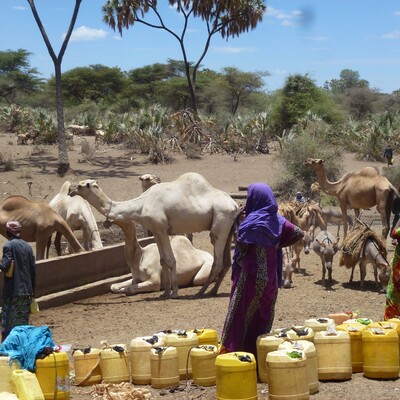
ILRI’s support for South-South partnership to improve food safety in Asia
Mutual learning and partnership among developing countries in Asia can help address alarming food safety issues
The International Livestock Research Institute (ILRI) scientists are scaling up lessons of food safety research and capacity development originally developed in Vietnam to neighbouring countries. Thus far, they have trained more than 100 stakeholders in Bangladesh, Cambodia and Thailand on different frameworks for food safety risk assessment.
Vietnam and many other Asian countries have rich culinary traditions; food safety, however, is an increasingly important development challenge as food-borne diseases are responsible for an enormous health burden affecting more than 150 million people in the region, especially vulnerable populations including children under the age of five and marginalized groups. There is an urgent need for technical and institutional solutions to better manage food safety risks, particularly in these countries’ dynamic informal markets.
In 2013, ILRI scientists teamed up with national partners in Vietnam to establish the National Taskforce on Food Safety Risk Assessment (Taskforce). The Taskforce carried out an array of studies on food safety, especially in the pork value chain; based on this research, guidelines and training materials on food safety risk assessment were designed. This research and training constitute an important body of knowledge to apply a risk-based approach to better manage food safety.
Key findings and recommendations from the comprehensive publication developed by the World Bank and many members of the Taskforce entitled Food safety risk management: Challenges and opportunities were taken up by the Vietnamese government to confront food safety issues in the country. Some recommendations of the report are being incorporated into a new investment project to improve food safety in major urban areas like Hanoi and Ho Chi Minh City.
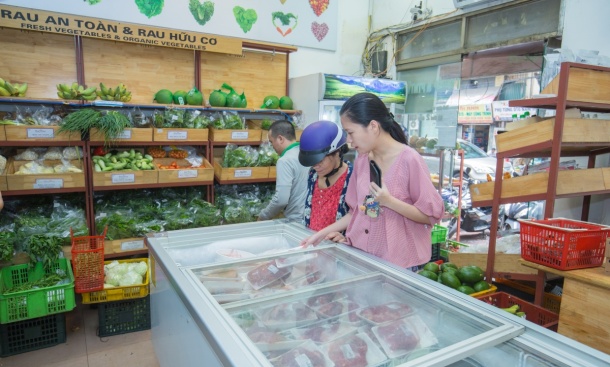
Convenient food boutiques are mushrooming in Hanoi, Vietnam (Photo credit: ILRI/Vu Ngoc Dung)
From late 2017 to 2018, four training sessions were conducted in Phnom Penh, Cambodia, Chiang mai, Thailand and Dhaka, Bangladesh using materials developed in Vietnam. Participants included researchers, government officials and other stakeholders. At the training sessions, participants were exposed to various frameworks for food safety risk analysis and risk communication strategies with a focus on a quantitative risk-assessment method.
Participants also took the opportunity to discuss the establishment of taskforces on food safety risk assessment at the country level modeled on the one established in Vietnam. ILRI key partners in these countries play an important role in food safety research and intervention including the Cambodia National Animal Health and Production Research Institute and the Bangladesh Livestock Research Institute.
Hung Nguyen, ILRI regional representative for East and Southeast Asia, said that ILRI’s sponsorship of South-South learning programs helps developing countries share and transfer knowledge and expertise among themselves. ‘The goal is to facilitate partnerships so that innovative practices that have been developed, tested and proven elsewhere in the South can benefit other countries facing similar challenges’, he said.
Related links:
CGIAR agriculture for nutrition and health program supports capacity development for food safety in Bangladesh
Collaboration between government and researchers to improve food safety in Cambodia
ILRI supports capacity development in addressing emerging infectious diseases in South and Southeast Asia
Vietnam launches report on better managing risks to food safety
Vietnam begins carrying out new measures in managing risks to food safety






